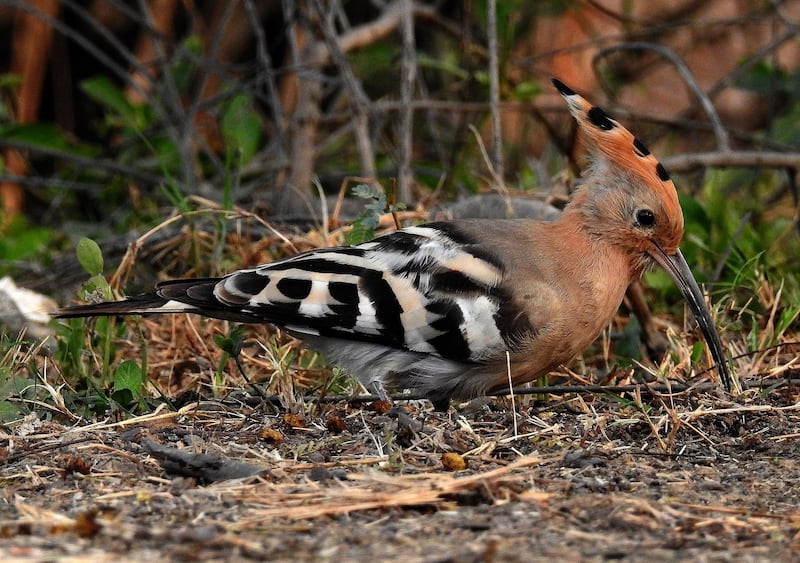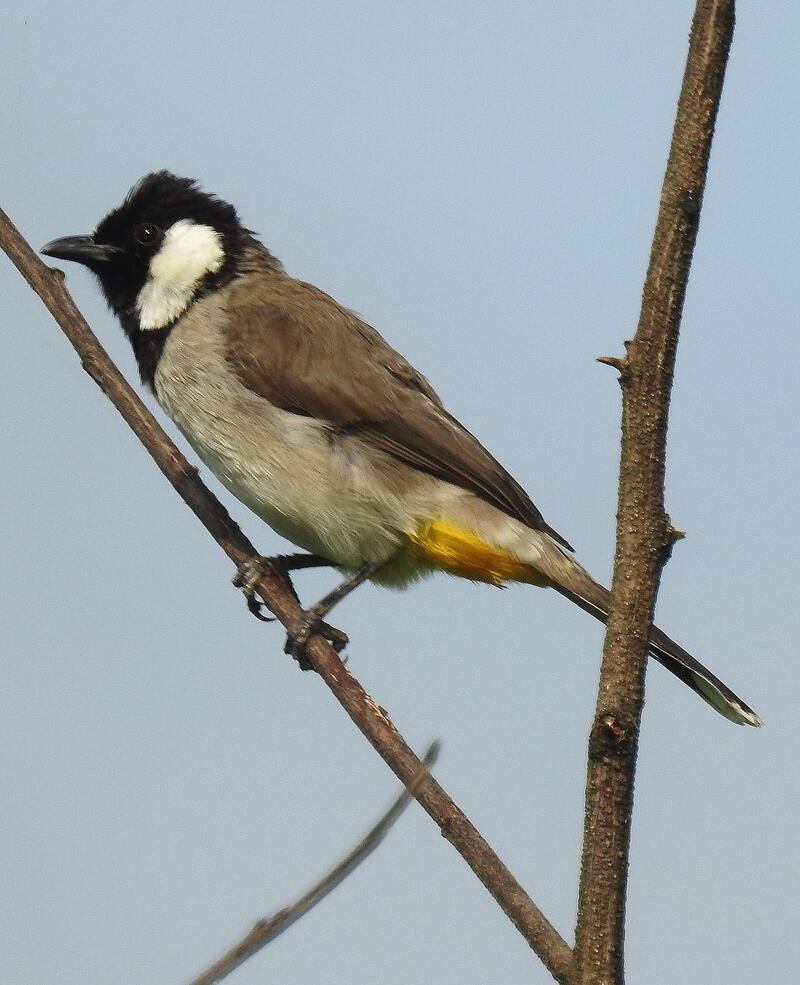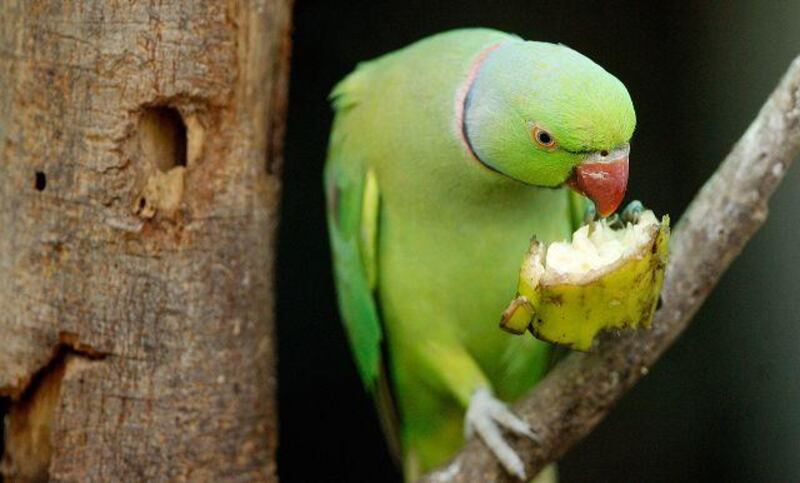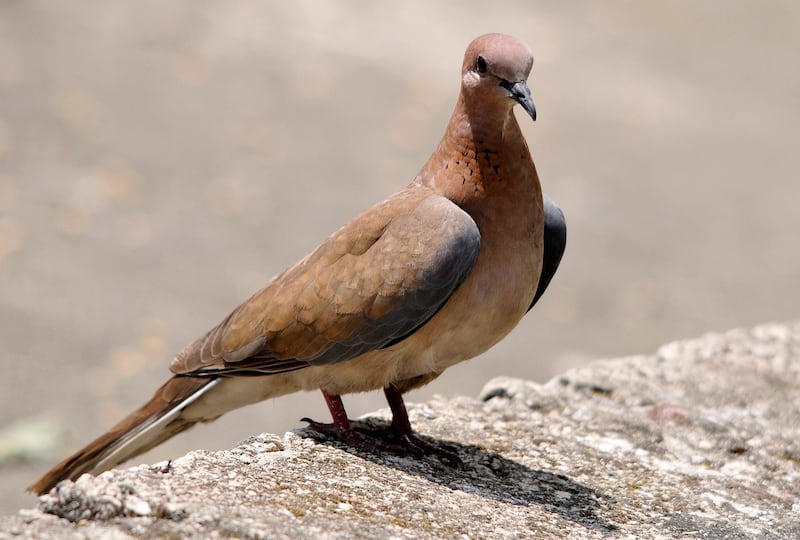There’s plenty of mayhem and malaise in the world right now, but amid the worry, many are noticing more birdsong than ever – a small, melodic silver lining.
So, are there more birds around, or do some of us simply have more time to notice nature? And is birdsong getting louder, or have other noises, such as traffic, merely dipped?
Dr Salim Javed, an avian ecologist and acting director of the Terrestrial Biodiversity Division at the Environment Agency Abu Dhabi, says it’s very likely that we are actually hearing more song from birds.
Why? Because they have more space to explore and will feel more confident in the quiet. “There’s more area and more habitat available, so they will tend to explore more,” explains Dr Javed.
“They’re very adaptable, especially those that live in urban environments, and they know that this is probably a temporary phenomenon but, for the time being, birds are enjoying these new empty spaces, a cleaner environment and less traffic. They’re expressing by exploring more and singing more."
He reminds us that while birds in urban landscapes are used to seeing humans, they're wild animals that fly away from people and avoid noisy environments, which is why quietening streets and cities mean they're spreading their wings.
An expert in bird movement and migration, Dr Javed says that while there’s no empirical data on birdsong levels right now, studies in Europe have found that birds sing for longer and more frequently at the weekend, suggesting that birdsong peaks when it’s quieter.
“Maybe it’s because they hear that it’s quieter and so realise they have a higher probability of being heard by a mate, if this is the purpose of the call.”
Birds primarily sing to attract a mate, but also to announce their territory and say “this is my domain”, and sometimes they produce calls if they are in distress or to communicate with their family members.
There is also a chance that we’re in the midst of a bird baby boom.
"There’s a larger space for them to explore, and they may stand a greater chance of finding even more suitable mates,” says Dr Javed.
While squawks are one thing, if you’re hearing beautiful birdsong right now in an urban setting in the UAE, it’s likely to be that of a lark or warbler, Dr Javed says. While common birds such as the palm dove “try to produce calls”, birds like warblers are known for “singing and for beautiful calls”.
He said if you’re near the desert when isolating at home, you’re very likely to regularly hear larks singing.
The avian expert points out that quieter environments can change the quality of birdsong, as well. In noisy environments, birds need to spend energy calling for longer and louder in order to be heard by a mate, “so maybe the quality of their song is not going to be as pronounced as it would be in a quieter, calmer environment".
Dr Javed has been sent some evidence of birds exploring new territories from his colleagues in India: one sent him a picture of two grey hornbills sitting on his balcony railing, and the other sent him a photo of peacocks on what was formerly a very busy, traffic-filled Mumbai road.
Closer to home, he says he has noticed flamingos in Al Wathba breeding in early April, about a week or 10 days earlier than usual. He notes that, while this isn’t scientifically confirmed, maybe the birds would have noticed that it’s “quieter and nice weather and so decided to prepone breeding".
He notes that the recent rains in the UAE will have also upped some birdsong levels: many birds tend to display more when it’s cloudy or rainy.
Finally, it’s important to remember how isolation makes us feel, notes Dr Javed. “Isolation has taught us a very important lesson: once you are confined you feel the value of your freedom, and of basic things like running outside and breathing in fresh air.
“We should look at animals and birds with the same yardstick. We should not keep them in captivity – birds are meant to fly and explore.”
What birds am I likely to see right now?
In an urban environment in the UAE you’re very likely to see palm doves, mynas and feral pigeons, of course. But you’ll also see the odd bright green parakeet, the collared dove and the white-eared bulbul with its flash of orange.
If you’re lucky and have the food source for them, you might see a hoopoe, with its long nose and crown of feathers; and also keep an eye out for varieties of warblers.
What if I have a nest on my balcony?
If you notice a nest in a tree on your terrace or garden, Dr Javed says that means birds found something in your home that gave them the comfort to breed, and that it’s important to maintain that so they can continue to look after their young.
“Breeding is a very sensitive stage of any animal’s life cycle – just don’t make too much noise or go too close to the nest area."










